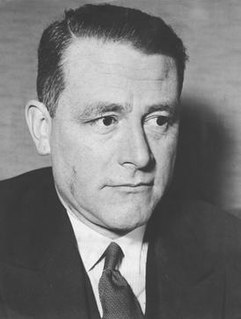Top 13 Quotes & Sayings by Carl Schmitt
Explore popular quotes and sayings by a German philosopher Carl Schmitt.
Last updated on April 14, 2025.
The concept of humanity is an especially useful ideological instrument of imperialist expansion, and in its ethical-humanitarian form it is a specific vehicle of economic imperialism. Here one is reminded of a somewhat modified expression of Proudhon’s: whoever invokes humanity wants to cheat. To confiscate the word humanity, to invoke and monopolize such a term probably has certain incalculable effects, such as denying the enemy the quality of being human and declaring him to be an outlaw of humanity; and a war can thereby be driven to the most extreme inhumanity.

























